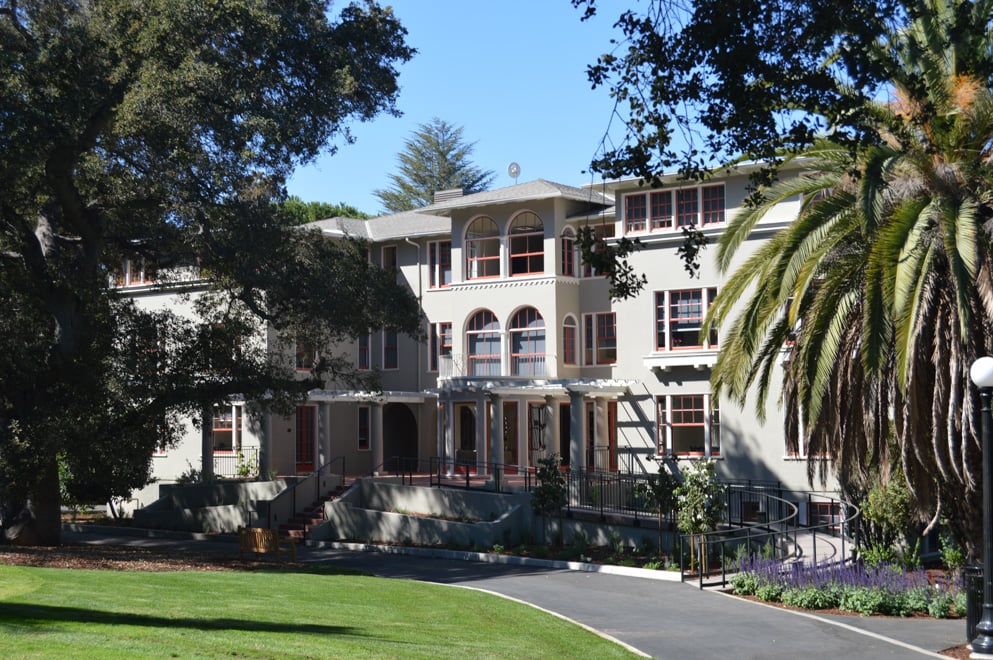The University removed a clause from the Sexual Harassment/Assault Investigation and Hearing (SHARE) Procedure that limited amnesty for violations of COVID-19 regulations for students who report sexual violence to the 2020-21 academic year.
Blanket amnesty was originally granted in the Campus Compact on Sept. 10 after advocates said that punishing reporters of sexual violence for violations of social distancing regulations would create a chilling effect on reporting.
University spokesperson E.J. Miranda wrote that “the clause (‘For Academic Year 2020-2021 only’) reflected the hope that there would only be COVID restrictions in place for one year,” in a statement to The Daily. “Recognizing that the amnesty should be in place for as long as there are COVID restrictions, it has been removed.”
After noticing the addition of the time limit in the SHARE procedure, law professor Michele Dauber tweeted that despite Stanford’s original promise of amnesty, the University “quietly limited” the policy on Oct. 26. Later, she said she realized that the change had actually been made much earlier without her knowledge, since the University had updated it without making the community aware.
The University did not respond to a request for comment on why the Stanford community was not notified of the policy change.
Dauber said that the amnesty limitation may create ambiguity over the exact policy and discourage students from coming forward with reports.
“Students should never, ever, ever be afraid to report sexual violence or sexual harassment,” Dauber said. “Any intimation that a student may face discipline for social distancing violations will just diminish reporting. As long as we have COVID, we need to have amnesty.”
Advocates say that this is not the first time the University has not sufficiently consulted students and faculty before implementing new sexual violence procedures.
Betsy Kim ’22, an ASSU executive fellow for sexual violence and Daily staffer, wrote in an email that the University “ignored student representatives for months” before finally granting blanket amnesty to reporters.
“Frankly, I was unsurprised to see that the most recent changes to the SHARE procedure were made without student knowledge or consent,” Kim wrote.
Marco Scalera ’23, also an ASSU executive fellow for sexual violence, also said that student advocates are often not consulted prior to procedural changes and sought to emphasize the importance of community feedback, writing that “SVFree advocates strongly for community input on all of these policies, though it is not always asked for.”
Miranda wrote in a statement to The Daily that the University’s “sexual violence policies and procedures were released as pilots” with the expectation that “appropriate changes” would be made “in response to community feedback,” which he said had been sought throughout the process.
“Changes we have made have been at the request of students and others interested in supporting students going through the process,” he wrote. “Stanford has taken extensive steps over the last several months to improve our efforts around prevention and response. All these efforts were informed through feedback from faculty, staff, and students.”
According to Dauber, the reported lack of communication has forced her to “set automatic reminders to check the website” in order to see if the SHARE procedure has been updated.
Dauber said that having to make corrections to policies after their release is not just time-consuming and frustrating, but also hurts survivors.
“This is the problem with releasing these things, and then people having to react to them once they’re already done,” Dauber said. “Had they sent this in advance for students or myself to review, then perhaps the whole thing could have been averted.”
Contact Jessica Zhu at jesszhu ‘at’ stanford.edu.
